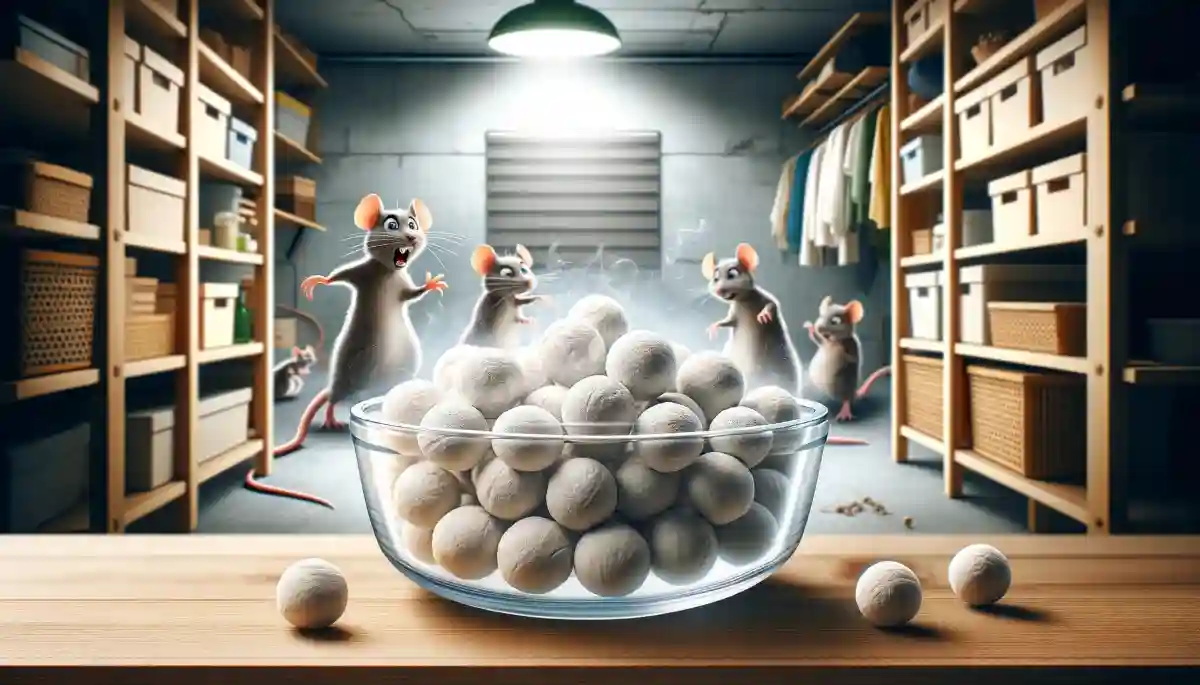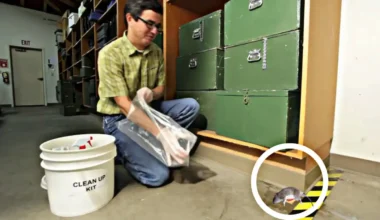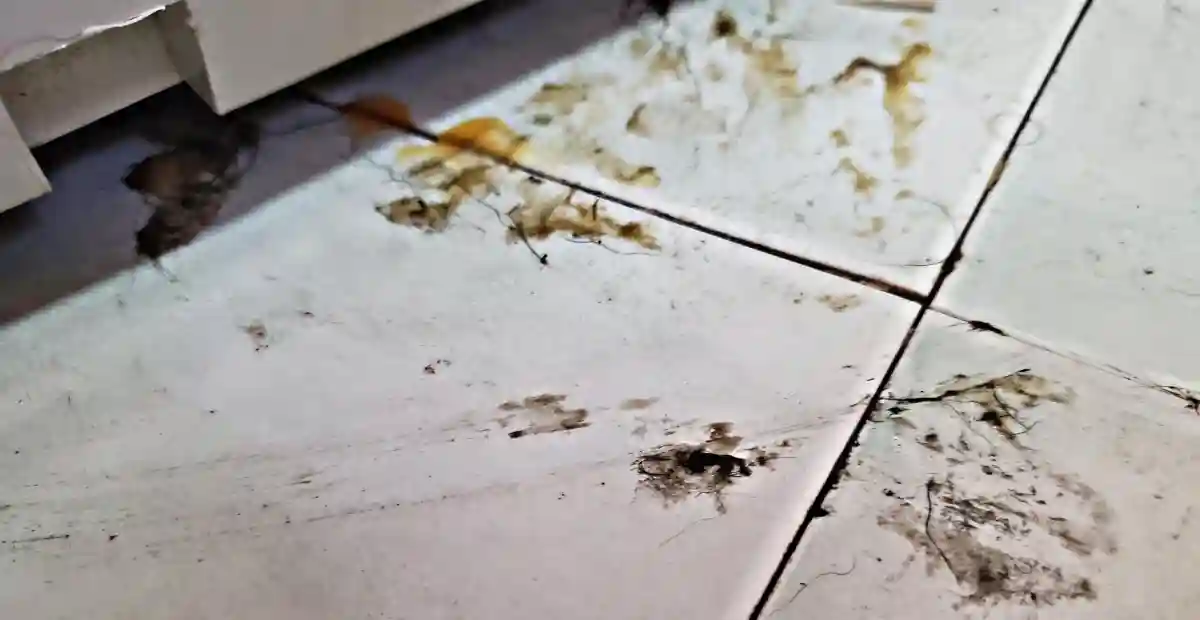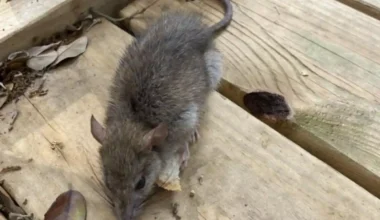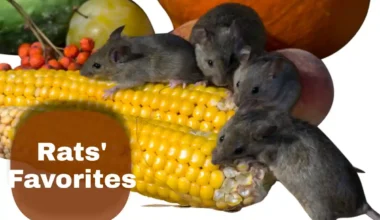If you’ve ever found a chewed and ruined bag of dog food in your pantry, you know how frustrating (and costly) a rodent problem can be. Mice are drawn to both dry and canned dog food, just like your pets are. In this article, we’ll share simple ways to keep mice away from dog food. We have also mentioned some of the risks mice pose to your home.
How to Keep Mice Away from Dog Food
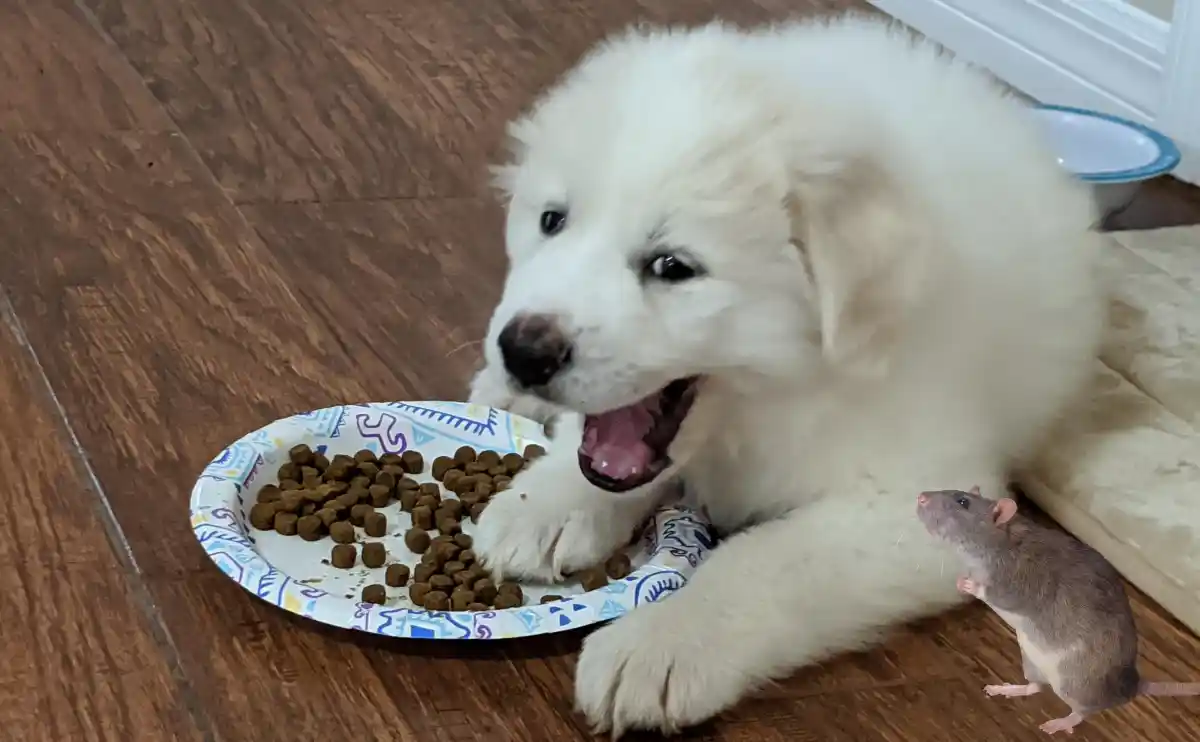
1. Use Elevated Food Bowls
Raise your dog’s food to stop messy situations that attract mice. This also makes it harder for them to reach the bowls. Moreover, it helps your fur friends with back or neck pain eat comfortably.
You can buy various elevating options or even make your own. Keep in mind that mice are good climbers, so it might not be 100% effective. However, feeders made of smooth materials like metal, ceramic, or hard plastic can make it tougher for mice to climb.
2. Avoid Leaving Dry Dog Food Out Overnight
Mice are opportunistic scavengers that can’t resist an easy meal. Leaving your dog’s dry food out in the bowl overnight will quickly attract mice to this tempting food source.
If you free-feed your dog, pick up the bowl at night and either secure it or remove any uneaten kibbles to keep mice away from dog food. Even if you meal feed, check the bowl at bedtime to ensure no scraps are left behind by your pup.
3. Prevent Mice from Entering Your Home
Keep mice away from your home entirely. Start by securely storing human food and clean up spills and dirty dishes quickly. Get rid of old clothes and paper products that mice might use as bedding.
Also, prevent mice from getting inside your home by sealing foundation cracks, using wire mesh for heating vents, and installing chimney screens. Trapping and removing mice should be a last resort. It’s important to fix the conditions that attracted them in the first place, or other mice will return.
4. Use Deterrents
You can use scent deterrents to keep mice away from your dog’s food. Peppermint oil is one option, and you may also find ready-made scents.
Another idea is to use cat hair for this purpose. Put the peppermint oil-soaked rag near your dog’s food storage or bowls to create an offensive scent for mice. But make sure it’s safe for your dog in case they touch it. Avoid using any harmful substances or poison that could be dangerous to your pets or children at home.
5. Set a Schedule for Feeding Wet Food to Your Dog
Leftover wet dog food, even when dried and crusted, can be very tempting for mice. If you feed your dog canned or fresh food, make sure to do it on a regular schedule and remove any uneaten food after a short time.
Avoid leaving canned food out overnight – the potential smell can attract other pests like flies, ants, or roaches. Keep your dog’s treats from becoming a feast for mice and flies too.
6. Keep Dog Food in Airtight Containers to Deter Mice
You want to protect your dog’s dry food from mice. The easiest way to do this to keep mice away from dog food is by storing it in a chew-proof container. While any sealed container will help, using a metal one is the most effective option. Determined mice can still chew into a plastic container.
When you seal your dry dog food, you also keep it fresh and crunchy for longer, making your furry friend happy.
7. Limit Dog Food Intake
Experts also recommend simply feeding your dog only what they can eat in one sitting. Meal feeding is better than free feeding for maintaining a healthy weight for your dog. Measure the food carefully to avoid leftovers that could attract mice.
You may have to consult your vet to determine the right daily calorie intake for your dog, making it easier to measure their meals. It might be tough to resist your dog’s begging for more food.
8. Cleanup After Each Meal
If you leave dirty dog bowls and scattered kibble after your dog eats, mice will be drawn to them. Also, unwashed bowls can become a breeding ground for harmful bacteria that could make both people and pets sick.
Make sure to clean your dog’s bowls each night or put them in the dishwasher if they’re dishwasher-safe. Also, use a broom to sweep up any leftover dry food to keep your home tidy and mice away.
Why Do Mice Like Dog Food?
Mice like dog food because it smells good and tastes good to them. They like to eat lots of different things, not just cheese like in cartoons.
Dog food has proteins, fats, and carbohydrates – all things that mice need to stay healthy. They can smell these things from far away as they rely on the sense of olfaction to detect food sources – according to the National Library of Medicine. So they come to eat the dog food when they find it. It’s like a free meal for them.
| Nutrition | Dog food has a lot of proteins, fats, and carbohydrates, which are all things mice need to stay healthy. |
| Smell | Mice have a strong sense of smell. The scent of dog food, which often contains meats or fish, attracts them. |
| Easy Access | If dog food is left out in the open, it’s like a free and easy meal for mice. |
The problem of Mice Contact with Dog’s Food
Mice can make your food and dog food dirty with their urine and droppings. Since they eat a lot, they leave behind a lot of waste everywhere they go. It’s estimated that around 20% of the world’s food is contaminated or eaten by mice and rats each year.
Mice can carry many harmful diseases that can infect both humans and pets. These diseases include leptospirosis, hantavirus, bubonic plague, and salmonella. Mice can transmit these diseases through their waste, bites, and even through fleas they carry. See the CDC (Center for Disease Control and Prevention) guide.
Apart from the health risks, mice can cause significant damage by chewing on woodwork, including walls and furniture. They are also known to be a common cause of electrical fires due to their habit of gnawing on wiring.
Conclusion – Keep Mice Away from Dog Food
No matter how you see mice, you have to keep them away from your dog’s food for your and your pet’s safety. These ideas are easy and affordable to implement. They will not only save your dog food from being wasted but also protect it from contamination by mice urine and poop. If you suspect an infestation, contact your local pest control provider.
